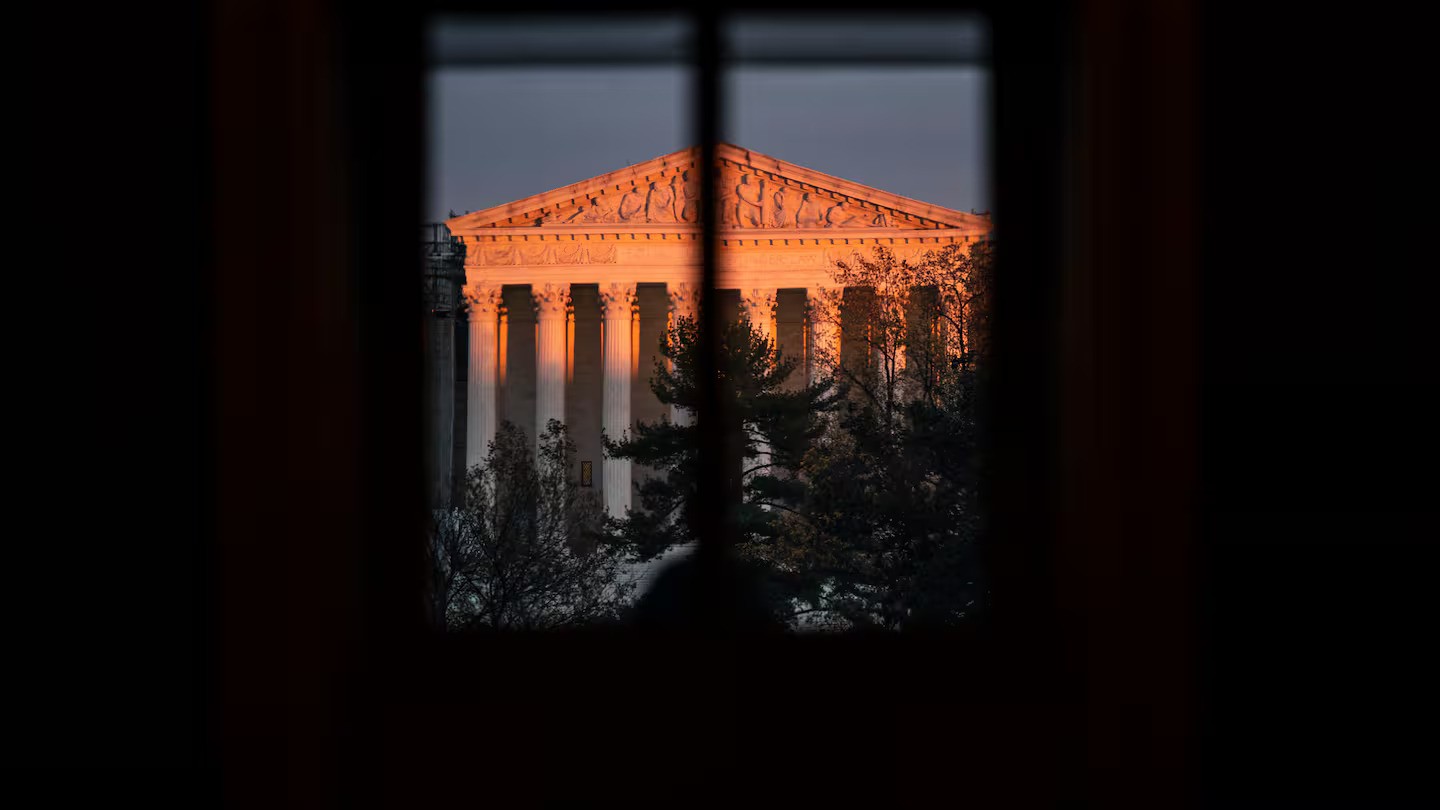Lifestyle
US Supreme Court Upholds Transgender Student’s Bathroom Rights

The US Supreme Court has upheld a lower court ruling allowing a 14-year-old transgender student, known by the pseudonym John Doe, to use the school bathroom that aligns with his gender identity. This decision came after the Court rejected an emergency appeal from South Carolina to overturn the preliminary injunction, which had been granted by a federal judge.
The Court’s majority indicated that South Carolina failed to meet the necessary criteria for emergency relief. They clarified that the denial of the application does not address the broader legal issues at play but is based on specific standards for emergency actions. Notably, Justices Clarence Thomas, Neil Gorsuch, and Samuel Alito dissented, expressing their desire to block the student’s access to the boys’ restroom.
This ruling specifically applies to John Doe, who attends a high school in Berkeley County, located outside of Charleston. The case arises in the context of broader discussions around transgender rights, especially as the Supreme Court prepares to hear a significant case regarding transgender athletes in the upcoming term. This case could potentially influence whether states can prevent transgender athletes from participating in girls’ and women’s sports teams in educational institutions.
The situation began when South Carolina conditioned funding for school districts on compliance with a law requiring students to use bathrooms corresponding to their biological sex. John Doe, assigned female at birth but identifying as male, faced disciplinary action for using the boys’ bathroom. Following a suspension and threats of expulsion, his parents withdrew him from his middle school and placed him in an online learning environment. This transition resulted in academic disengagement and social isolation, prompting John Doe to seek a return to in-person education under conditions that respected his gender identity.
In 2024, Doe and his family initiated legal action against the state, school district, and others, arguing that the bathroom restrictions violated Title IX, which prohibits discrimination based on sex in educational settings. They also claimed that the law violated constitutional provisions for equal treatment.
Initially, the court did not rule on Doe’s request for a preliminary injunction. However, the situation changed when South Carolina enacted similar bathroom restrictions as part of its budget bill for the current financial year. As the legal battle unfolded, the US Court of Appeals for the 4th Circuit granted Doe an injunction against the enforcement of the bathroom rule just before the school year began. The 4th Circuit based its decision on a prominent 2020 case involving Gavin Grimm, where restrictions on a transgender student’s bathroom use were deemed violations of Title IX and the Equal Protection Clause.
In a recent emergency appeal, South Carolina sought to reverse the 4th Circuit’s ruling, arguing that the Supreme Court’s previous decisions on transgender treatment and the pending case on transgender athletes undermined the legal precedent set by the Grimm case. The state’s filing emphasized the emotional and divisive nature of the issue, suggesting that lawmakers should have the authority to determine the regulations surrounding bathroom use.
The legal team representing John Doe countered that such bans have detrimental effects, causing transgender students to avoid bathrooms altogether, which can lead to psychological distress, anxiety, dehydration, and physical discomfort. Alexandra Brodsky, a lawyer with Public Justice, expressed approval of the Supreme Court’s decision, stating that it reaffirms the notion that transgender students are not threats but rather individuals seeking to learn and thrive in a supportive environment.
As this case progresses, it highlights the ongoing debates surrounding transgender rights in the United States, particularly in educational settings. The implications of the Supreme Court’s decisions could set significant precedents for the treatment of transgender individuals across the nation.
-

 World3 months ago
World3 months agoTest Your Knowledge: Take the Herald’s Afternoon Quiz Today
-

 Sports3 months ago
Sports3 months agoPM Faces Backlash from Fans During Netball Trophy Ceremony
-

 Lifestyle3 months ago
Lifestyle3 months agoDunedin Designers Win Top Award at Hokonui Fashion Event
-

 Sports3 months ago
Sports3 months agoLiam Lawson Launches New Era for Racing Bulls with Strong Start
-

 Lifestyle3 months ago
Lifestyle3 months agoDisney Fan Reveals Dress Code Tips for Park Visitors
-

 Health3 months ago
Health3 months agoWalking Faster Offers Major Health Benefits for Older Adults
-

 World3 months ago
World3 months agoCoalition Forms to Preserve Māori Wards in Hawke’s Bay
-

 Politics3 months ago
Politics3 months agoScots Rally with Humor and Music to Protest Trump’s Visit
-

 Top Stories3 months ago
Top Stories3 months agoUK and India Finalize Trade Deal to Boost Economic Ties
-

 Entertainment3 months ago
Entertainment3 months agoExperience the Excitement of ‘Chief of War’ in Oʻahu
-

 World3 months ago
World3 months agoHuntly Begins Water Pipe Flushing to Resolve Brown Water Issue
-

 Science3 months ago
Science3 months agoNew Interactive Map Reveals Wairarapa Valley’s Geological Secrets









